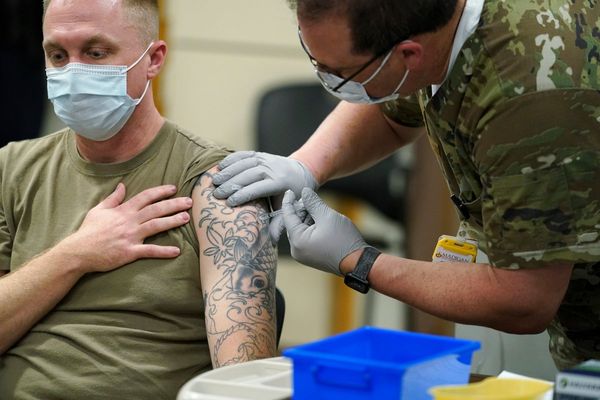With little more than a dozen words, actor Zac Efron has spiked interest in a relatively obscure mental disorder.
In an interview with Men's Health, the entertainer was quoted as saying: "I just don't go out. People in large groups, it triggers my agoraphobia".
It's that line in a lengthy story that has people asking – what is agoraphobia? How do you treat it? And could I have it too?
Efron rose to prominence in the 2000s after starring in the High School Musical trilogy and Hairspray.
At the height of the COVID-19 pandemic, he was photographed on a number of occasions in Byron Bay, where he was reportedly dating a local.
But it's that throwaway line – which may or may not have been delivered off the cuff – that's currently generating headlines.
So, we've dialled up an expert to find out more.
What is agoraphobia?
The Fifth Edition of the Diagnostic and Statistical Manual for Mental Disorders (DSM-5) describes agoraphobia as a marked fear or anxiety about two (or more) of the following five situations.
- 1.Using public transport
- 2.Being in open spaces
- 3.Being in enclosed places
- 4.Standing in line or being in a crowd
- 5.Being outside of the home alone.
These situations almost always provoke fear or anxiety and are actively avoided.
The DSM-5 states that "every year approximately 1.7 per cent of adolescents and adults have a diagnosis of agoraphobia.
"Females are twice as likely as males to experience agoraphobia," it says.
It's unclear whether Efron has had a formal diagnosis.
Clinical psychologist and the Director of Sydney Phobia Clinic, Corrie Ackland said people often use such terms loosely.
"These terms can get bandied around," Ms Ackland said.
"And we hear it across many of our clinical presentations.
"Another one that's often a bugbear is people saying that certain things trigger their OCD.
"And if it's something that they are still quite functional, and the distress is only mild, it actually wouldn't satisfy criteria for that diagnosis, not to discount that it might be something that's challenging for a client. And diagnoses can sometimes be a little bit arbitrary in that fact.
"So, we don't want to discount the fact that someone might be having difficulty or challenge with some area of their life that could be improved.
"And that might be the case for Zac Efron that he might find that he is reticent, to go into these situations, experiences more discomfort than he would like, maybe feels like his enjoyment is somewhat impaired, because he would prefer not to be there and want to leave.
"And if that's all it is, it would be subclinical, but still would benefit from improvement.
"We would still want that to be an improved experience to him."
Can you self-diagnose?
Ms Ackland said it depends.
"A diagnosis is a label that refers to a collection of symptoms.
"So, in that way, we can self-diagnose to the extent that we look through that criteria and say, yes, I do that, yes, I think that, yes, I experienced this.
"And we meet the criteria that satisfies that diagnostic label.
"However, diagnoses from a clinical point of view also take into account the context within which these symptoms occur and also a differential diagnoses to actually confirm that these symptoms are part of this one collection, and not due to other possibly co-occurring or other things entirely."
Ms Ackland said a formal diagnosis goes to those depths and can then imply a certain treatment plan.
Has the COVID-19 pandemic led to an increase in cases?
Ms Ackland hasn't seen an increase in agoraphobia cases specifically, but people are certainly presenting to Sydney Phobia Clinic with worsening social anxiety, performance anxiety and fears of flying.
"We certainly have seen clients post-COVID that note COVID as a time that seemed to be associated with a worsening of their symptoms, with an onset of symptoms that weren't there before and also a lapse in symptoms that had otherwise improved to be in a very good place pre-pandemic."
Can agoraphobia range from being manageable to debilitating?
Ms Ackland said severe agoraphobia could be "completely impairing".
"These are often clients that find it difficult to even leave their homes to the point of going to the letterbox, the distress upon doing so would be significant to the point potentially of panic.
"Then it will go all the way down to someone who continues to participate in certain situations, but does feel some level of out of normal range anxiety, or less enjoyment in these situations and might be reliant on certain strategies or people in order to continue functioning and we will consider that quite mild."
How do you treat agoraphobia?
It doesn't matter whether your agoraphobia is mild or debilitating, the treatment remains the same.
"Treatment, regardless of the severity, and also regardless of whether they're meeting all of the criteria, or if they're sitting quite sub clinically, would be under a cognitive behavioural therapy," Ms Ackland said.
"And the cognitive behavioural therapy is really just referring to the interrelationship between our thoughts, feelings and behaviours, which is represented within that agoraphobia cycle and targeting each of these areas with specific strategies to enable that cycle to change and to be able to participate more normally in those situations."
What should you do if you suspect you have agoraphobia?
Ms Ackland said if you're not sure you have agoraphobia, then it's likely to be reasonably mild and in that case intuitive steps might help.
"Intuitive steps would be trying to increase your practice in those areas that you're noticing some discomfort around to see if it eases up.
"Like the saying says, the more we do something, the better it should get.
"So certainly, that that could be a first step.
"If that doesn't help, or if that as a first step is too challenging, that's when we would recommend getting some formal support by visiting a psychologist and having some cognitive behavioural therapy."







